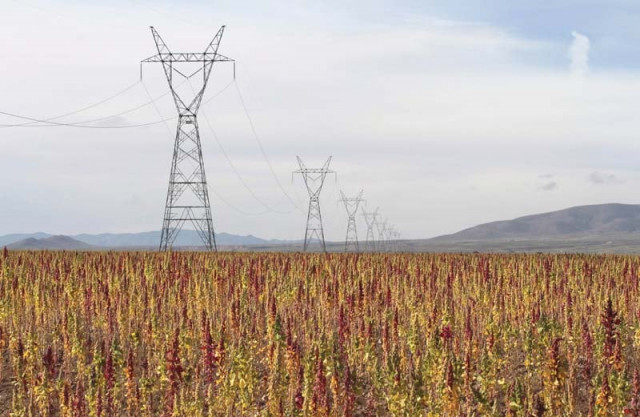Capacity charges: Consumers pay billions to idle power plant
Rousch Power is not able to run in winter as gas supply is diverted to textile mills

Rousch Power is not able to run in winter as gas supply is diverted to textile mills. PHOTO: REUTERS
Consumers of electricity have paid billions of rupees in capacity charges to an idle power plant as gas supply, earmarked for it, has been diverted to textile manufacturers.
The consumers are not only forced to pay that much money, but they also face power outages that disturb life and business.
Access denied: No natural gas for power plants that refuse LNG
According to officials aware of the development, Rousch Pakistan Power Limited, located in Abdul Hakeem, Punjab had not been receiving gas for the last two years during winter.

However, the Water and Power Development Authority (Wapda) and National Transmission and Dispatch Company (NTDC) continued to pay monthly bills in shape of capacity charges to Rousch in line with a power purchase agreement. The gas thus saved was diverted to the textile industry.
This disclosure was made in a meeting of the Economic Coordination Committee (ECC) held on December 31, 2015.
Estimates suggest the consumers are paying Rs600 million per month in capacity charges to the power plant without receiving 412 megawatts of electricity.
It is interesting to note that the Ministry of Water and Power, which had been a strong advocate of gas supply to power plants, sent a couple of summaries calling for diverting gas from Rousch plant to the textile industry.
Incongruity: Power plants stay closed despite cheaper oil
Considering a summary of the ministry, the ECC, in its meeting on December 17, 2013, approved provision of 85 million cubic feet of gas per day (mmcfd) for 60 days to the industrial units in the light of consent given by the power producer.
In the winter of 2014, the Ministry of Water and Power again sent a summary to the ECC on the same subject following directives from the prime minister, who had received complaints from the textile industry.
The prime minister said the gas allocation mechanism established in the previous year should be followed in 2014 as well as that would ensure a balance in supplies to the energy producers, industry, domestic and commercial consumers.
The halt to gas supply has brought down production of cheaper electricity by about 400 megawatts at a time when annual maintenance of canals has restricted hydroelectric power generation to sharply lower levels. This has resulted in an increase in load-shedding in the country.
Not only Rousch, but many other power plants had been shut down and consumers were forced to pay the capacity charges. It is the best arrangement that suits power producers who receive around Rs2 per unit in capacity payment without running their plants.
“This is like a rental power plant mechanism to mint money from the consumers,” remarked an official.
Published in The Express Tribune, January 8th, 2016.
Like Business on Facebook, follow @TribuneBiz on Twitter to stay informed and join in the conversation.



















COMMENTS
Comments are moderated and generally will be posted if they are on-topic and not abusive.
For more information, please see our Comments FAQ